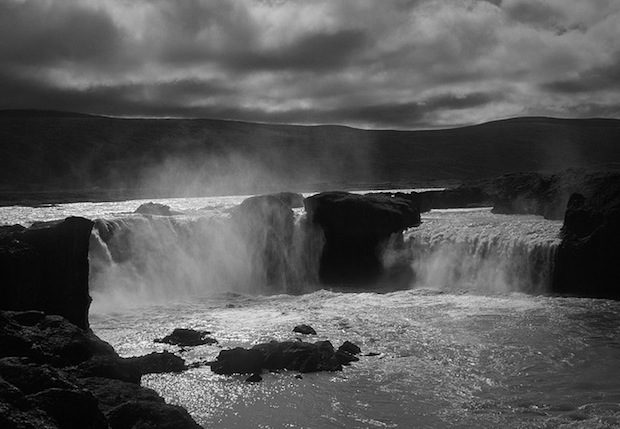Icelandic Paganism — Good or Bad Sign?

News from the world of religion:
Icelanders will soon be able to publicly worship at a shrine to Thor, Odin and Frigg with construction starting this month on the island’s first major temple to the Norse gods since the Viking age.
Worship of the gods in Scandinavia gave way to Christianity around 1,000 years ago but a modern version of Norse paganism has been gaining popularity in Iceland.
“I don’t believe anyone believes in a one-eyed man who is riding about on a horse with eight feet,” said Hilmar Orn Hilmarsson, high priest of Ásatrúarfélagið, an association that promotes faith in the Norse gods.
“We see the stories as poetic metaphors and a manifestation of the forces of nature and human psychology.”
This is
a) Bad news: the Icelanders have lost their Christian faith, and are now in danger of reverting to the worship of false gods;
b) Bad news: just when the Icelanders finally seem to be getting Christianity out of their system, some are even going back to an even dumber form of belief in the supernatural;
c) Good news: because paganism is true, or at least more true than the Christianity and the secularism it supplants;
d) Moderately bad news: it’s a shame they’re going to paganism, but at least it’s a modernist, liberal version of paganism, without any of the sacrifices, and without anybody really believing in the supernatural; these are just people playing games; nothing will come of it;
e) Moderately good news: paganism is false, but as C.S. Lewis saw, it is more true than atheistic materialism; the pagan, whatever his errors, understands what the modern materialist does not: that the world is shot through with spirit and divinity; perhaps Europe must be re-paganized to some degree before it can be re-Christianized;
f) Something else.
Explain your choice.
Though I’m understandably (as a Christian) troubled by the loss of Christianity in Iceland, I’ll go with e); I find that I have more in common with my pagan friend Franklin Evans than I do with many of my atheist materialist friends, when it comes to matters metaphysical. Besides, I find the “it’s just a symbol” paganism of the folks in this story as unthreatening as liberal Protestantism. There’s no there there. It’s all therapy and theater.
UPDATE: A reader’s comment suggests another option:
g) Potentially quite bad news, if these people ever get serious about Norse paganism; the Nazis in their day, and white power worshipers today, show where malevolent and powerful forms of Norse paganism lead.
Subscribe for as little as $5/mo to start commenting on Rod’s blog.